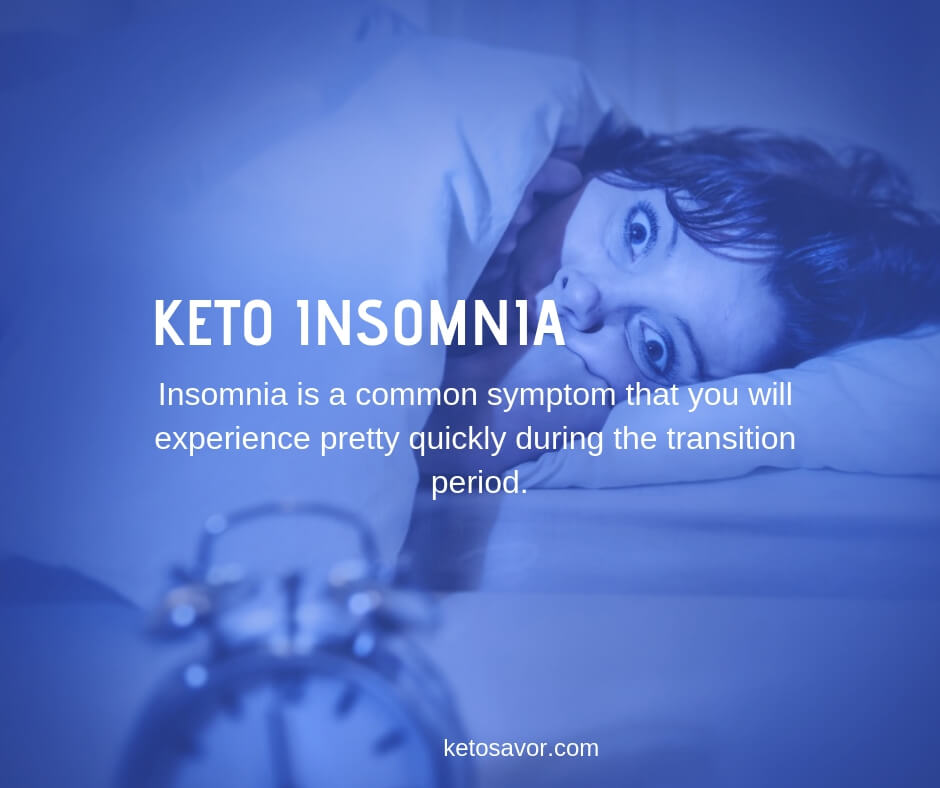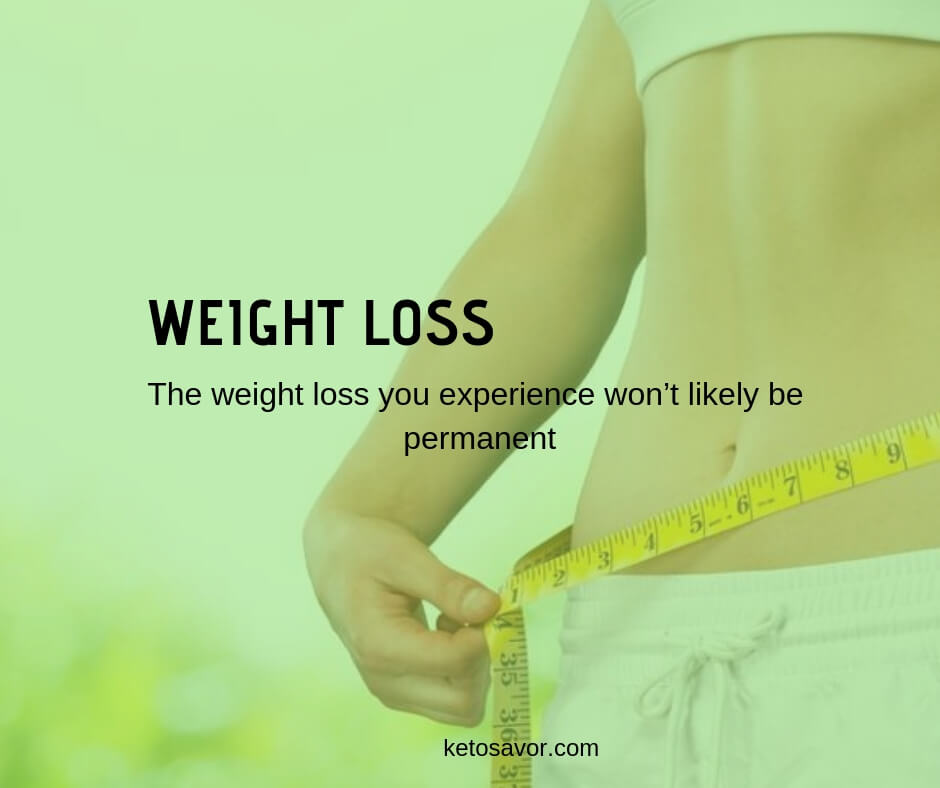Do you want to lose weight? A popular way to do so is through the keto diet. By reducing your carb intake and focusing on fatty foods instead, you switch from burning glucose to fatty acids. But how do you know if you’re doing the diet properly? Here are the 11 ketosis symptoms to keep in mind.
Table of Contents
1) Insomnia or Lack of Sleep

One negative effect of switching to a low-carb diet such as the keto diet is that it affects your quality of sleep. Insomnia is a common symptom that you will experience pretty quickly during the transition period. Why is this so? It’s largely due to the role of carbs in serotonin production.
You see, people usually rely on carbs for energy. Carbohydrates are responsible for giving glucose to your body. This specific type of sugar travels inside your body through the blood supporting — helping your organs function well. In particular, your brain and red blood cells are dependent on glucose.
In the case of your sleeping habit, carbohydrates affect it by helping L-tryptophan to enter your brain. This is an amino acid that’s essential in producing serotonin, which is known as the happy chemical. It not only keeps you in a good mood but it also helps you sleep better when it turns to melatonin.
So if you don’t get enough carbs each day, your body fails to maintain its usual amount of serotonin and the sleep hormone that is melatonin. You end up with insomnia. Thankfully, this is a temporary effect. Expect to go back to your regular sleeping schedule after a couple of weeks into the keto diet.
2) Feeling Tired
Another negative side effect you might feel as you start your new diet is fatigue. Insomnia is already bad for productivity; it doesn’t help that you also feel tired during the day. Thus, it’s no wonder that some people opt out of the keto diet even before the benefits once you’re fully in a state of ketosis.
So how long should you wait to get rid of the fatigue? For some, it only takes a week. Others have to wait for about a month before they reach full ketosis. But no matter the duration, you can combat feelings of tiredness by taking electrolytes — either through drinks or supplements.
Try to get at least two grams of sodium and a single gram of potassium each day. Likewise, a third of a gram of magnesium will help minimize your fatigue. Plus, the electrolytes will help your body manage the fatty yet processed foods you eat.
3) Decreased Hunger
A positive effect of the ketosis diet is that you won’t feel the need to eat all the time. The exact reason why this happens isn’t clear, but there are several factors worth noting. For one, there’s the so-called hunger hormone that is ghrelin, which tells the brain whether it’s time to eat or not. (source)
You see, obese people have too many ghrelin hormones in their bodies. This is what makes them want to eat more than they should. Eating soda, snacks, fruit juice makes your body produce more ghrelins. Being on a low-calorie diet has the same effect and makes people gain all the weight they just lose.
In contrast to other diets, the keto diet does not recommend eating foods that are high in fructose; you won’t be producing the usual number of ghrelins. Moreover, the use of ingredients like coconut oil and ghee means that your food isn’t digested quickly — making you feel full longer.
4) Better Focus

This may seem in direct contrast to the symptom of feeling fatigued. But you may actually experience these two symptoms. First, you experience fatigue during the first few weeks of switching to a low-carb diet. But in the long run, it’s possible to have more concentration and feel more energized.
One reason this might happen is due to the lower levels of carbohydrates in your body, which helps moderate blood sugar. People with high blood sugar levels may develop diabetes or insulin resistance — and these have been linked to memory loss and other cognitive problems.
Likewise, your brain might benefit from using ketones to function. There is scientific interest in how ketones could improve memory and cure dementia. Ketones are supposedly neuroprotective; these chemicals might safeguard your brain from deteriorating.
5) Increased Ketone Levels
Speaking of ketones, one symptom of this low-carb diet is its increase in number in your body. What’s great is that you don’t have to pay for professional help to check the level of ketones. You can view it on your own by observing either your breath or urine activity.
If you have a breath analyzer, check your acetone level. It’s not an exact indicator of the number of ketones in your body, but an increased acetone level usually means you’re well on your way to a state of ketosis. You can get indicator strips designed to check how many ketones you released through urination.
6) Dehydration

Feeling thirsty way more than usual is not such an uncommon symptom. This is due in part to the water weight you lose, which is most severe during the first few weeks. It’s like this: When you start the low-carb diet, your insulin level decreases. This leads to fewer numbers of stored glycogen.
Glycogen is important because each and every gram of it has at least three grams of water. Once you lose glycogens, you lose more water in your body. Plus, you lose electrolytes, which are important for functions such as energy production and body temperature regulation.
While it’s a good indicator that the ketosis is kicking in, you must remain hydrated. The increased ketone production will definitely make you lose water at a faster rate. Drink a minimum of 12 glasses of water each day instead of the usual eight glasses.
7) Headaches
Under a low-carb diet, you consume fewer amounts of sugar. While this is good for your weight loss goals, this can lead to headaches. Having too much or too little sugar in your body causes headaches, but the latter can also lead to muscle pain.
Similarly, the dehydration issue we previously mentioned can result in headaches. Expect to experience them as early as your first day on the keto diet. This can last for up to a week and if it occurs longer, you should consult your doctor.
8) Decreased Libido
One symptom you might not expect is the decrease in your sexual drive. It’s believed to be caused by the hormonal imbalance in your body once you shift to the keto diet. You see, having fewer carbohydrates could affect your thyroid. If this gland doesn’t function well, you might feel tired often.
People who are in a low mood are less likely to have a strong sexual drive. Likewise, the temporary drop in energy you experience during the transition period doesn’t help improve your libido. Research suggests that a low-carb diet increases cortisol production, which affects hormonal balance.
9) Weight Loss

Of course, this is a welcome symptom of ketosis. It’s the primary reason why many people opt to start the keto diet. Like the Atkins diet and the paleo diet, the keto diet works though low carb consumption. However, the weight loss you experience won’t likely be permanent.
You can lose weight during the first week of switching to the keto diet. But this doesn’t mean you’re already in a complete state of ketosis. The weight you just lost likely came from all the water and the stored carbs your body decided to burn as you reduced your daily carb intake.
You’ll know that you achieved a state of ketosis if you continue losing weight in the long run. Once your body has lost some water weight and carbs, it will shift its focus to burning body fat for energy. Thus, it’s okay if you don’t drastically lose weight — it’s much better to lose a little bit of fat on a consistent basis.
10) Constipation and Diarrhea
This unpleasant symptom involves your digestive system. After all, you’re switching what you eat from the usual high-carb meals to low-carb and high-fat dishes. Starting the diet can lead to both constipation and diarrhea. However, these should disappear once your body is used to your new eating habits.
An easy solution to your temporary digestive problems is to eat food with fiber. Bread and rice may contain fiber, but their regular variants are also high in carbohydrates. Thus, look for low-carb versions. Similarly, foods such as cabbage, cauliflower, avocado, nuts, and flaxseeds contain dietary fiber.
You should get around 25 grams of dietary fiber regularly. This will improve your bowel movement. Furthermore, you should get foods that contain medium-chain triglycerides (MCTs) such as coconut oil and dairy. MCT is easier for your body to burn than long-chain triglycerides.
11) Keto Breath
Finally, one symptom you probably don’t want to have is this. Known as the ketosis breath, this is a case of bad breath. But what’s unique about this is that it’s not caused by merely failing to brush your teeth on a regular basis. This directly has to do with your state of ketosis.
An infamous description about this keto breath is that it smells like nail polish remover or any fruit with a strong and rather foul smell. Of course, not everyone on a keto diet experiences this awful symptom. But for those who do develop keto breath, all hope is not lost — this is only a temporary case.
Keto breath usually happens a few days into your keto diet. During this period, you should drink more water to flush out the ketones. Don’t forget to brush and floss your teeth. Once your body is used to the new diet, your breath should recover without having to seek any medical treatment.
Overall, there are many signs to look out for if you want to know whether you’re already in a state of ketosis or not. While some ketosis symptoms aren’t beneficial to your body, they are usually just temporary. If you stick to the keto diet long enough, you will surely reap its many benefits.
We hope that this guide helped you understand how your body reacts to a shift to a low-carb and high-fat diet. Feel free to send us a message for any queries or suggestions.



